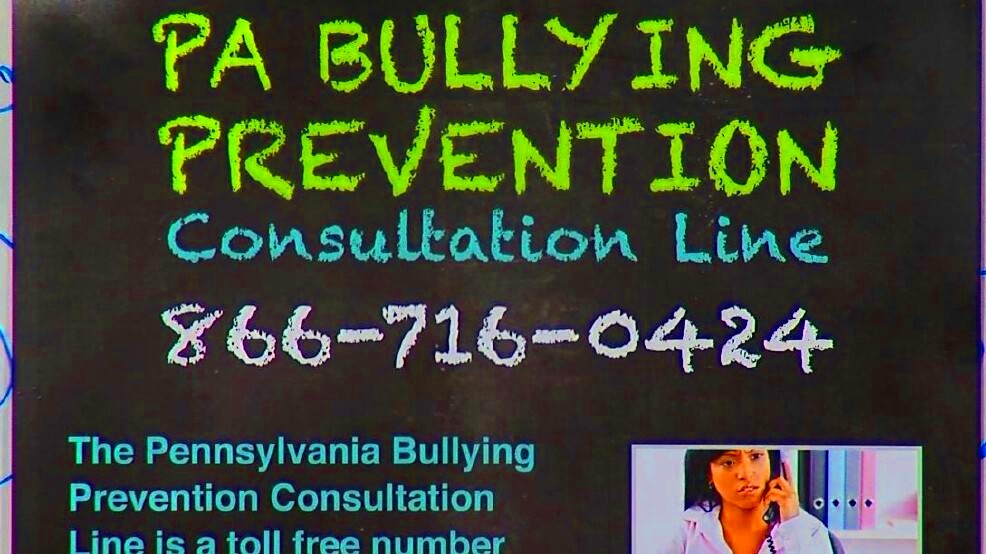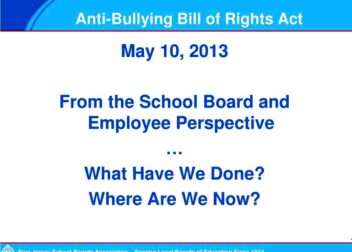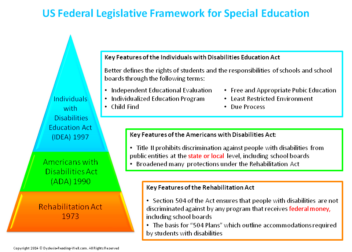Anti-Bullying Prevention Laws for Pennsylvania Schools
In Pennsylvania lawmakers have taken a stand against bullying recognizing the significant impact it can have on a childs well being and education. The state has implemented anti bullying laws to create a safer and more inclusive atmosphere in schools. Witnessing the personal challenges faced by children and their families it’s evident that these laws go beyond mere regulations; they represent a dedication to cultivating a positive school environment. This introduction will delve into how these laws tackle the issue of bullying and assist schools in their initiatives to combat it.
Key Features of Pennsylvania’s Anti-Bullying Legislation

The anti bullying laws in Pennsylvania aim to safeguard students and promote a positive educational atmosphere. Here are some important aspects.
- Definition of Bullying: The law provides a broad definition of bullying, including physical, verbal, and relational aggression. This comprehensive approach ensures that various forms of bullying are addressed.
- Required Policies: Schools must develop and implement anti-bullying policies. These policies should include prevention strategies, intervention procedures, and clear definitions of prohibited behaviors.
- Staff Training: School personnel are required to undergo training on how to recognize, prevent, and address bullying. This helps ensure that all staff members are equipped to handle bullying incidents effectively.
- Student Education: Schools must educate students about the effects of bullying and the importance of respectful behavior. This education is crucial for preventing bullying and fostering a supportive school culture.
Requirements for Schools Under State Law
According to Pennsylvania laws schools bear key responsibilities to tackle and prevent bullying effectively. These obligations encompass
- Policy Development: Each school must create a detailed anti-bullying policy. This policy should outline the procedures for reporting, investigating, and resolving bullying incidents.
- Reporting Mechanisms: Schools are required to establish clear reporting mechanisms for students and parents. This ensures that bullying incidents are reported promptly and can be addressed in a timely manner.
- Investigation Procedures: Once a bullying report is received, schools must investigate the incident thoroughly. The investigation should involve interviewing witnesses, assessing the situation, and taking appropriate action.
- Support for Victims: Schools must provide support services for victims of bullying, including counseling and resources to help them cope with the emotional impact.
- Communication with Parents: Schools are required to keep parents informed about bullying incidents involving their children. This communication is essential for ensuring that parents are aware of the situation and can work with the school to address it.
Reporting and Investigation Procedures
When it comes to tackling bullying, taking swift and decisive action is key. The anti bullying laws in Pennsylvania highlight the significance of having reporting and investigation protocols in place within schools. Based on my interactions with teachers and parents I’ve witnessed the impact of these procedures in handling and resolving bullying cases.
Let’s take a more in depth look at the approach to reporting and conducting investigations.
- Reporting Incidents: Schools must have a straightforward process for reporting bullying. This often includes a dedicated hotline or online form where students, parents, and staff can report incidents confidentially. Ensuring that this system is accessible and well-publicized is key to encouraging reports.
- Initial Response: Once a report is made, the school should act quickly to acknowledge receipt of the complaint. This initial response includes informing the reporting party that their concern is being taken seriously and outlining the next steps.
- Investigation Process: The investigation should be impartial and comprehensive. This involves gathering statements from all parties involved, including witnesses. Schools must document every step of the investigation and make sure that the process is fair and transparent.
- Resolution and Follow-Up: After the investigation, schools should take appropriate action based on their findings. This could include disciplinary measures for the bully and support for the victim. Follow-up is essential to ensure that the bullying has stopped and that the affected students feel safe.
- Record Keeping: Maintaining detailed records of bullying incidents, investigations, and resolutions helps schools monitor trends and improve their policies over time. This data can also be crucial if further legal action is required.
Role of Parents and Guardians in Preventing Bullying
In preventing and tackling bullying parents and guardians have a role to play. Speaking from experience I believe that an involved and proactive attitude from families can greatly impact a child’s school experience. Here’s how moms and dads can take part.
- Open Communication: Encouraging open dialogue between parents and children about their school experiences helps identify bullying early. Parents should regularly check in with their children and create a safe space for them to share their concerns.
- Educate About Bullying: Teaching children about what constitutes bullying and why it’s harmful can empower them to speak up and seek help if they encounter or witness bullying. Education should include discussions on empathy and respectful behavior.
- Know the School’s Policies: Parents should familiarize themselves with their child’s school anti-bullying policies. Understanding these policies allows parents to effectively advocate for their child if a bullying incident occurs.
- Support and Encourage: Providing emotional support and encouragement to children who are bullied helps them feel valued and less isolated. Additionally, recognizing and praising their bravery in addressing the issue can boost their confidence.
- Collaborate with Schools: Working closely with teachers and school administrators can help address bullying effectively. Parents should attend meetings and be involved in the resolution process to ensure their child’s needs are met.
Support Systems Available for Victims
Students who face bullying typically require assistance beyond resolving the situation. They need continuous support to recover and rebuild their self esteem. Schools in Pennsylvania, along with community resources offer various support systems to aid these students. Through my experiences with professionals I have witnessed the significant effect that adequate support can have on a childs healing journey and overall well being.
Here are some important resources to assist victims.
- Counseling Services: Many schools offer counseling services for students who have been bullied. School counselors can provide a safe space for students to express their feelings and work through their experiences.
- Peer Support Groups: Peer support groups can be incredibly beneficial. These groups allow victims to connect with others who have had similar experiences, reducing feelings of isolation and providing mutual support.
- Academic Assistance: Victims of bullying may experience difficulties with their academic performance. Schools can offer tutoring and academic support to help students catch up and regain their confidence in their studies.
- Parental Support Programs: Programs that offer guidance and resources to parents can help them support their child effectively. These programs might include workshops or one-on-one consultations with professionals.
- Community Resources: Outside of school, there are various community organizations and helplines dedicated to supporting bullied children and their families. These resources can provide additional counseling, advocacy, and assistance.
Recent Updates to Anti-Bullying Laws
Pennsylvania has made strides in bolstering its anti bullying legislation in recent times. These revisions demonstrate an increasing recognition of the nuances related to bullying and a dedication to improving student security. I find it reassuring to witness the progressive development of these laws as they respond to emerging obstacles and perspectives. Here are the key highlights of the updates.
- Expanded Definitions: Recent updates have broadened the definition of bullying to include cyberbullying and harassment that occurs off school grounds but affects the school environment. This expansion ensures that all forms of bullying are addressed, regardless of where they occur.
- Mandatory Training: New regulations now require schools to provide mandatory training for all staff members on identifying and managing bullying. This training aims to ensure that everyone in the school community is prepared to handle bullying effectively.
- Increased Transparency: There has been a push for greater transparency in how bullying cases are handled. Schools must now publicly report statistics on bullying incidents and the measures taken in response, helping to hold them accountable and inform the public.
- Enhanced Support for Victims: Updates to the laws now mandate more comprehensive support systems for victims, including access to mental health resources and counseling services. This reflects a deeper understanding of the long-term impact bullying can have on students.
- Parental Involvement: New provisions encourage greater parental involvement in addressing bullying. Schools are required to keep parents informed and involved in the process, ensuring that they are part of the solution.
Challenges and Criticisms of Current Laws
Despite the advancements achieved there are still challenges and criticisms regarding Pennsylvania’s anti bullying laws. Through my conversations with teachers and parents I’ve come to realize that although the laws establish a structure their execution can vary. Here are some of the key concerns.
- Implementation Variability: One major challenge is the variability in how schools implement and enforce anti-bullying policies. While some schools have robust programs in place, others may struggle with inconsistent application or lack of resources.
- Resource Limitations: Many schools face budget constraints that affect their ability to fully comply with the requirements of the law. Limited resources can impact staff training, support services, and the effectiveness of anti-bullying programs.
- Parental Engagement: Although recent updates aim to improve parental involvement, not all parents are fully engaged or informed about their child’s school policies. This gap can hinder the overall effectiveness of anti-bullying efforts.
- Bullying Beyond School: The laws primarily focus on bullying that occurs within the school environment, sometimes leaving gaps in addressing issues that occur online or outside school hours but still affect students’ well-being.
- Enforcement and Accountability: There are concerns about how schools handle bullying cases and the enforcement of disciplinary measures. Ensuring that all incidents are addressed promptly and fairly remains a challenge.
Frequently Asked Questions
What should I do if I suspect my child is being bullied?
If you think your child might be facing bullying it’s crucial to begin by engaging in a conversation with them that is both open and supportive. Urge them to express their experiences and emotions. Inform your childs school about the bullying incident and make sure to follow up to confirm that necessary steps are taken. Additionally seeking assistance from school counselors or external resources can prove beneficial.
How can schools ensure their anti-bullying policies are effective?
To make anti bullying policies work well schools must carry out their plans thoroughly. This means providing training for staff setting up ways to report incidents and consistently enforcing the rules. Its also important for schools to engage students, parents and the community in fostering a positive and respectful school environment.
Are there legal consequences for bullying in Pennsylvania?
Absolutely the anti bullying legislation in Pennsylvania outlines different repercussions based on how serious the bullying is. Schools can enforce disciplinary measures and if the situation is severe legal steps may be pursued. The emphasis is not on dealing with the issue at hand but also on preventing future incidents through education and assistance.
What resources are available for victims of bullying?
Those who have experienced bullying can find help through various channels such as counseling services in schools, support groups with peers and community organizations focused on assisting bullied kids. Moreover there are hotlines available both at the national and local levels that provide advice and emotional assistance.
How can parents advocate for stronger anti-bullying measures?
Parents can push for anti bullying policies by talking to school authorities getting involved in parent teacher groups and keeping up with school rules. Sharing thoughts and ideas with school boards and community lawmakers can also contribute to developing anti bullying approaches.
Conclusion
As we navigate through the complexities of anti bullying laws in Pennsylvania it’s evident that while progress has been made there is always room for enhancement. Through my personal experiences and interactions with educators, parents and students I’ve come to understand the intricacies of these laws and the genuine intention behind them. The recent revisions and persistent challenges demonstrate a shared dedication to fostering safer and more supportive school environments. Nevertheless it is crucial for all parties involved, including schools, parents and policymakers to collaborate continuously in addressing the ever changing issues related to bullying. By remaining engaged and taking actions we can significantly impact students lives and cultivate a culture of respect and empathy within our educational institutions.


